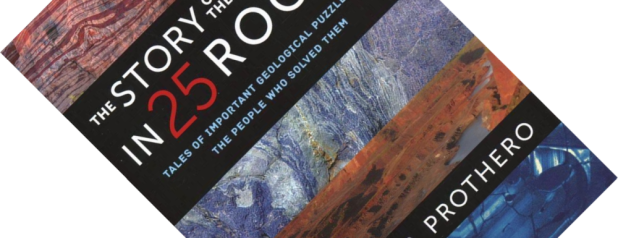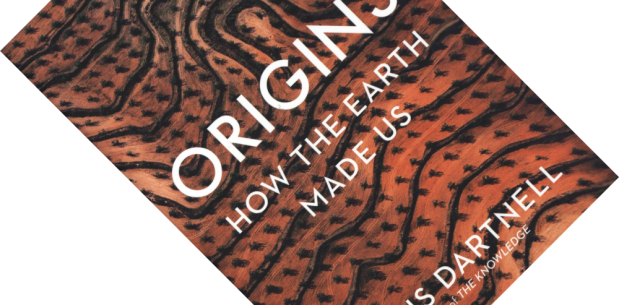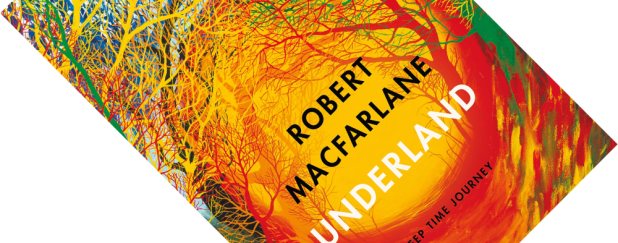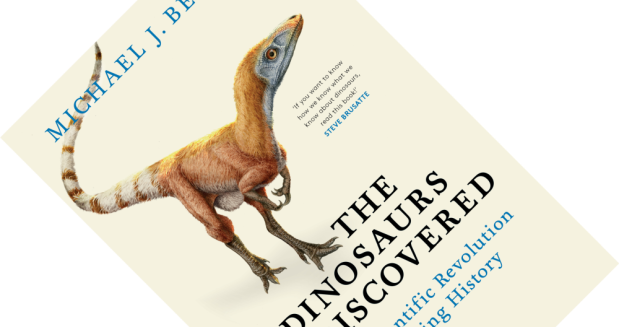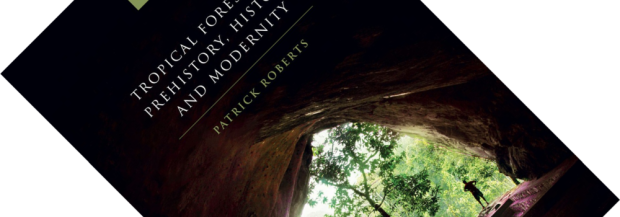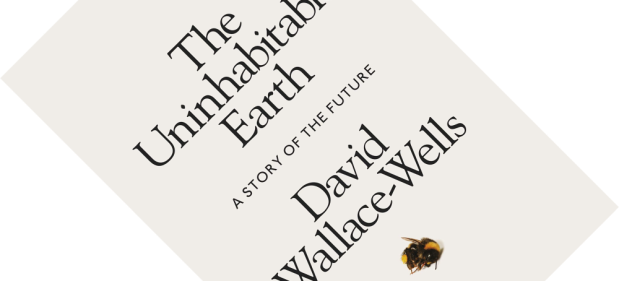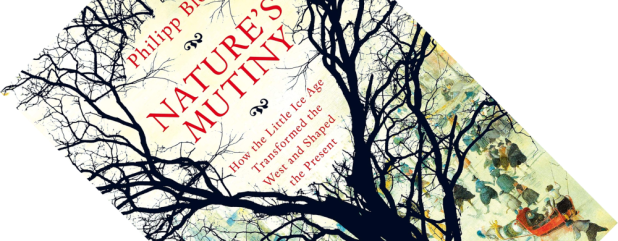Judging by the title of this book, you might expect it to talk of 25 remarkable kinds of rocks and minerals. But in the preface, geologist and palaeontologist Donald R. Prothero makes clear that his book looks as much at famous outcrops and geological phenomena. Bringing together 25 readable and short chapters, he gives a wide-ranging tour through the history of geology, celebrating the many researchers who contributed to this discipline.
climate change
Book review – Origins: How the Earth Made Us
Origins asks one question: how did the Earth make us? More accurately, like a six-year-old whose curiosity cannot be sated, there lies a series of recursive “why” questions at the heart of this book. Astrobiologist and science communicator Lewis Dartnell takes a big history look at human evolution and especially civilization, seeing how far down the explanatory rabbit hole he can go. Time and again, he grounds his answers in geology and geography. You would be forgiven for thinking this sounds like what Jared Diamond attempted more than two decades ago, but calling it Diamond-redux would not do it justice.
Book review – Underland: A Deep Time Journey
Shelter. Yield. Dispose.
These three tasks, so says nature writer Robert Macfarlane, signify our relationship with the world beneath our feet, both across time and across cultures. Underland is his lyrical exploration of underground spaces where people have sought shelter from warfare or hidden valuable treasures, are extracting minerals in mines or knowledge in research facilities, or are looking to dispose of waste. It is one of two big books published only five months apart on the subterranean realm, the other being Will Hunt’s Underground: A Human History of the Worlds Beneath Our Feet which I will be reviewing next. But first, Underland.
Book review – Anti-Science and the Assault on Democracy: Defending Reason in a Free Society
Long-term readers of this blog will be aware that the proliferation of pseudoscience and anti-scientific sentiments disturb me deeply. As someone with a scientific training, my concerns are foremost academic. But as the contributors to this edited collection wish to show, these anti-intellectual trends also impact democracy. This is perhaps nowhere more pronounced than in the USA and Anti-Science and the Assault on Democracy is therefore appropriately US-centric. It is also rather academic and scholarly in tone, more so than other works aimed at a general audience.
Book review – The Dinosaurs Rediscovered: How a Scientific Revolution is Rewriting History
If you are interested in dinosaurs, the last two years have seen a slew of great books published, and there is more in the pipeline. The latest I am reviewing here is The Dinosaurs Rediscovered from the well-known British Professor of Vertebrate Palaeontology Michael J. Benton. With a huge number of possible topics you could write about, and an already saturated book market, Benton has set himself a very specific aim: to show how the science of palaeobiology has moved from a descriptive, speculative scientific discipline, to a hard, testable, rigorous one. In other words, given that palaeontologists nowadays regularly make some pretty amazing and precise claims about creatures long extinct, how, exactly, do they know that?
Book review – Carboniferous Giants and Mass Extinction: The Late Paleozoic Ice Age World
Not so long ago, the idea that giant reptiles once roamed the earth was novel, unbelievable to some, but their reign represents only one part of deep time. Go back further in time, to the Carboniferous (358.9 to 298.9 million years ago), and you will find a world of giants as bizarre and otherworldly as the dinosaurs must have once seemed to us. A world where clubmoss trees grew up to 50 metres tall, with scorpions as large as dogs and flying insects the size of seagulls. With Carboniferous Giants and Mass Extinction, palaeobiologist George McGhee, Jr. presents a scholarly but fascinating overview of the rise and fall of this lost world, and why it still matters to us.
Book review – Tropical Forests in Prehistory, History, and Modernity
Primaeval, pristine, playground of Indiana Jones, home to ancient ruins and primitive tribes – nothing says wilderness more than tropical rainforests. They have had a firm grip on our collective imagination for centuries as the antithesis of civilization. But after reading archaeologist Patrick Roberts’s Tropical Forests in Prehistory, History, and Modernity, it seems my introduction is a load of lyrical rubbish. Synthesizing an enormous body of scientific literature, this book dispels the Victorian-era explorer-mystique to reveal a picture that is far more fascinating.
Book review – The Uninhabitable Earth: A Story of the Future
“It is worse, much worse, thank you think”. With these ominous words, David Wallace-Wells, deputy editor at New York magazine, starts his no-holds-barred story of climate catastrophe. Pulling together worst-case scenario predictions, he is hell-bent on scaring the living daylight out of his readers by sketching the manifold crises that loom in our near future if we let climate change develop unchecked. He proves a poetic agitator and I admire his outspokenness – I don’t think he is alarmist, but simply saying what many scientist are silently thinking. Whether this divisive approach is helpful is another question, and one for which he has been criticised. It is a price Wallace-Wells is willing to pay, because he thinks most people are not scared enough.
Book review – Nature’s Mutiny: How the Little Ice Age Transformed the West and Shaped the Present
In the minds of most people, the words “Ice Age” will invoke images of mammoths and sabertooth tigers. But historians use the phrase “Little Ice Age” to refer to a particular period in recent history when average temperatures dropped for a few centuries. The impact this had on societies was tremendous. In Nature’s Mutiny, originally published in German and here translated by the author, historian Philipp Blom charts the transformations that resulted and shaped today’s world. It is also one of the most evocative book titles I have seen this year.
Book review – Essentials of Geology (13th Edition)
Like so many teenagers, I wanted to become a palaeontologist. However, there was no degree programme in palaeontology in the Netherlands back then (I doubt there is one nowadays), so I was advised that one option to prepare myself was to do a Master’s in biology or geology. I choose the former and never looked back, but remained fascinated with the latter. Now, twenty years later, my job exposes me to many geology textbooks and especially Cambridge University Press has a wonderful output of advanced-level books that I really want to read. But when I reviewed Earth History and Palaeogeography some time ago, I realised I was out of my depth and struggled with the jargon. Is it ever too late to start over and make an entry into a new field? I decided to shell out and invest in a textbook to find out.

